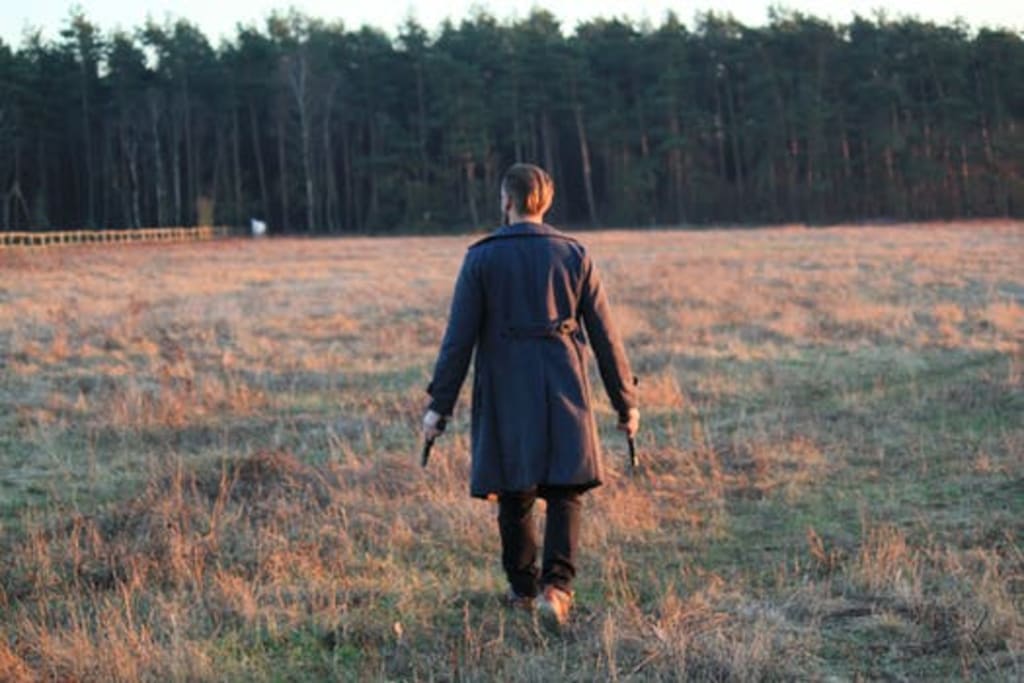
The gun debate has two sides, one being gun control, the other being those who want to maintain the access to guns and change nothing. However, in my opinion as a former crisis interventionist, a lot of these situations stem from an inability to resolve conflict.
You're probably thinking this is really simplistic or just a red herring in an already divisive debate on gun control. However, in my experience as a crisis interventionist, most disputes were interpersonal and not about psychosis. Psychosis, although sometimes can be violent, is also a loss or break with reality that may show up in vastly different ways. There is not a lot of empirical evidence supporting that psychosis causes violence. Most of the interpersonal conflicts were relational, disputes in intimate partnerships, disputes with neighbors, etc. There was never a true case that seems to be the narrative the media wants to say is true.
Even in following the Parkland shooter, what stuck out to me were his texts to his ex girlfriend's new boyfriend.
Before even trying to solve the mental health system in America, which has seen deinstitutionalization and what social workers refer to as the recycling of clients through various systems, we really need to start teaching conflict resolution. Even as a former social worker, I realize that this seems like an odd idea as a solution to gun control. Regardless of my feelings about guns, conflict resolution is not an innate skill. It's one that takes learning and experience.
Starting from an early age when Bobby gets into a fight with Peter, the teacher forces them to apologize, and that's it. What if we were to teach a course on conflict resolution? What it really means to resolve conflict.
We live in a world right now that is divisive, we can't even see the other side's point of view. We have created the world we live in to be hostile to other points of view and as a result, we are unable to resolve conflict effectively.
Interpersonal conflict is a real thing that requires us to decipher the feelings and emotions that come from most conflict. Jealousy, anger, insecurity, etc. We never force ourselves to confront what these feelings mean within any relationship, intimate or otherwise. We talk about emotional intelligence as a higher form of recognizing feelings and acting accordingly, but not everyone has been equipped with this ability.
We are all flawed, therefore conflict is natural to arise in any given situation. It is very cliche to say it's not about what happened, it's about our reaction to it.
Furthermore, most social workers would say age has a lot of determining factors in things like this. There is a working and empirically relevant theory that teenagers have an inability to see consequences of their actions. That oftentimes, teens act without any thought to the future. They are in a now bubble. This feeling is so real that they respond without thinking. Most scientists say the brain isn't fully developed till 25.
The one thing across all the shootings was a history of domestic violence and interpersonal conflict. Almost every single one. Most of these ideas are cyclical, meaning each individual social issue, whether it was interpersonal violence or interpersonal conflict, had very specific psychological responses and abusive tactics.
What I will say, in my experience, is that solving interpersonal conflict issues is similar to solving homelessness and poverty, in that a social ill cannot be completely solved. We do not live in utopias. But we can make a genuine effort to give people the tools they need and study how people create and sustain patterns of interpersonal conflict that are unhealthy and even destructive.
About the Creator
L R
I am an introvert who enjoys writing, playing guitar, and eating burritos. Thanks for reading.






Comments
There are no comments for this story
Be the first to respond and start the conversation.